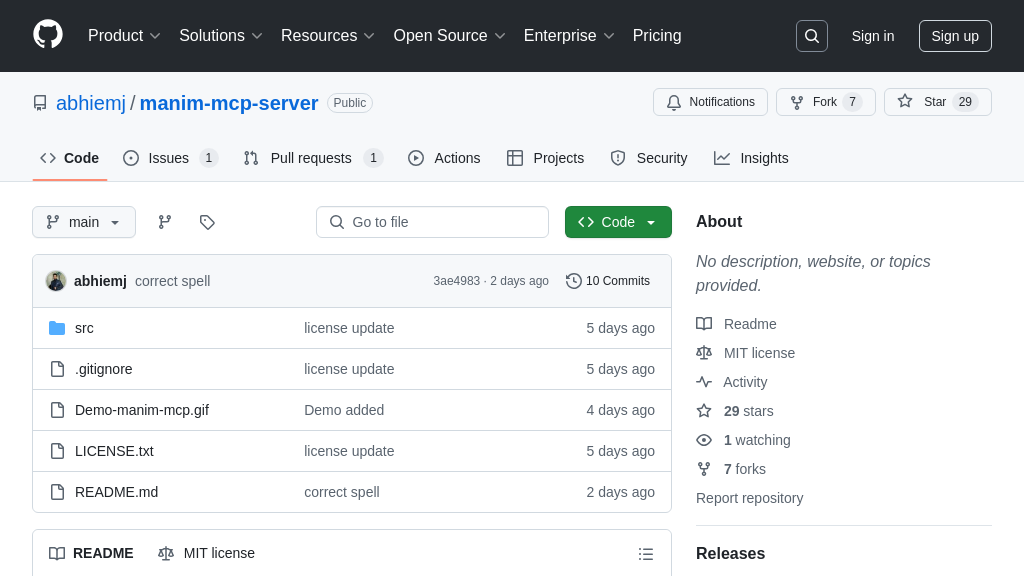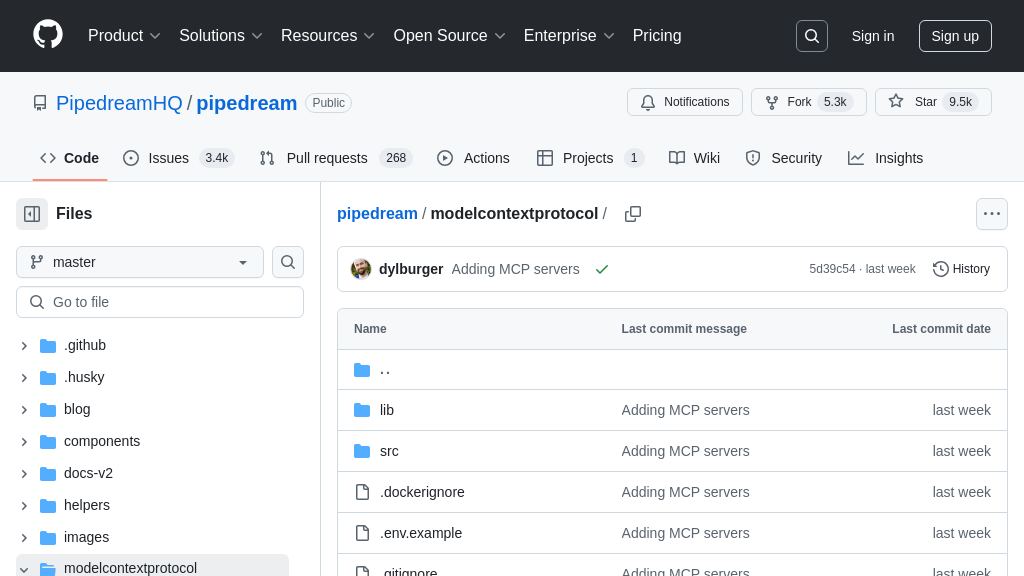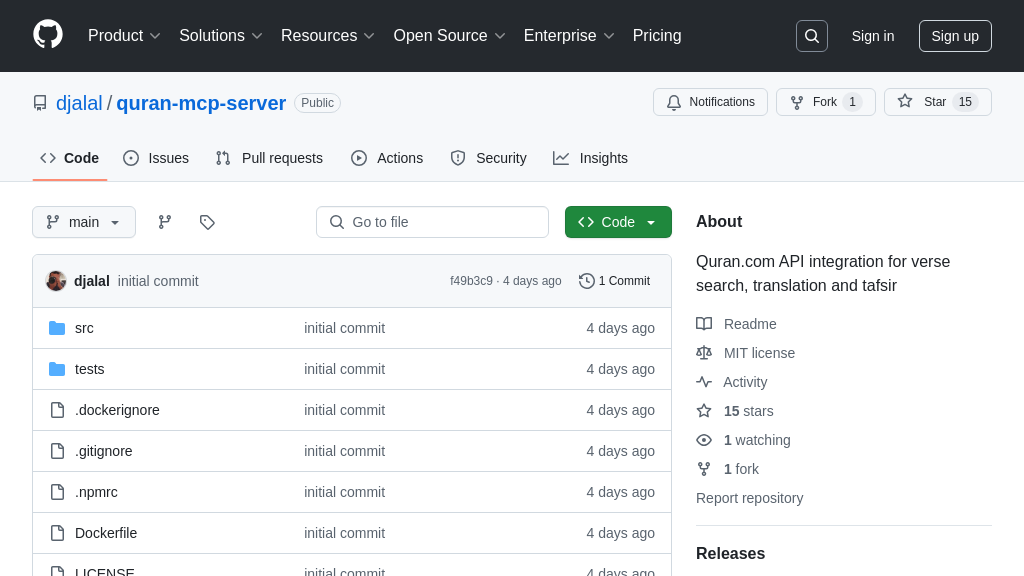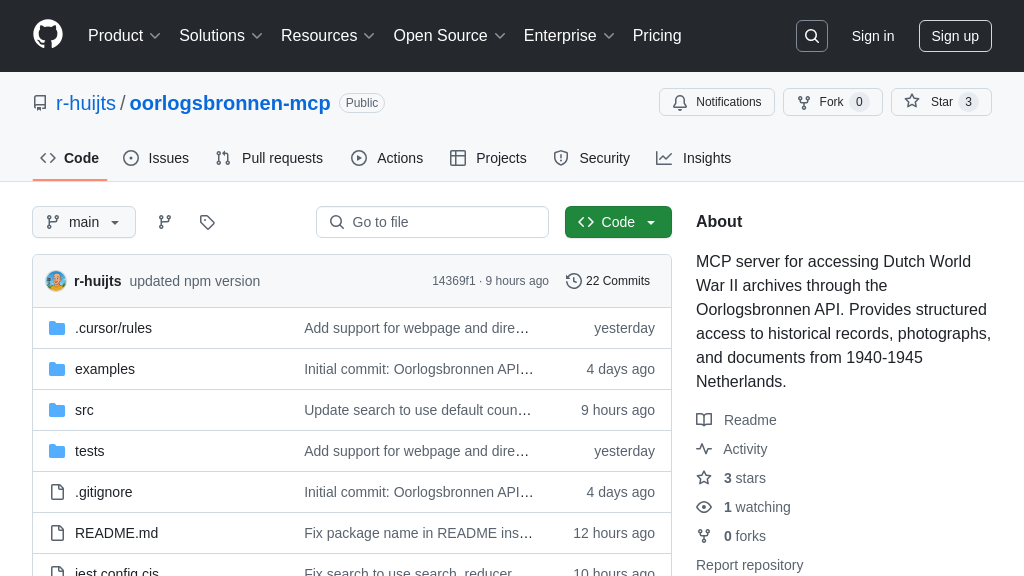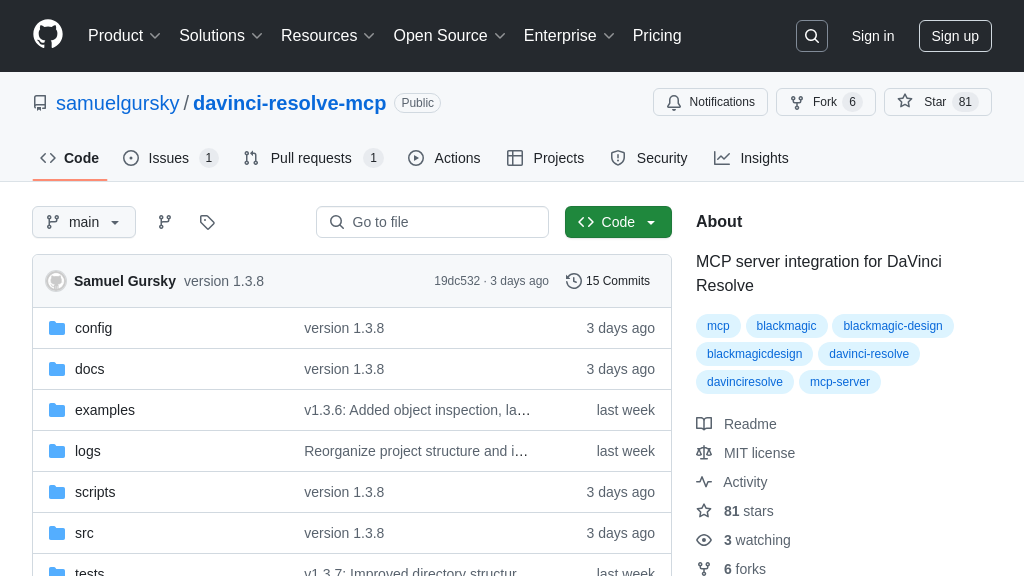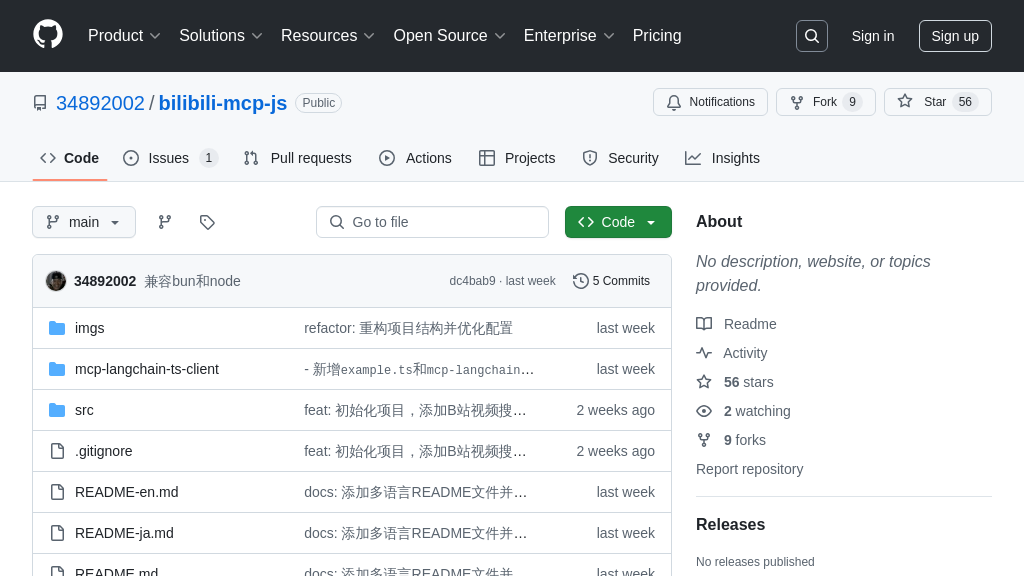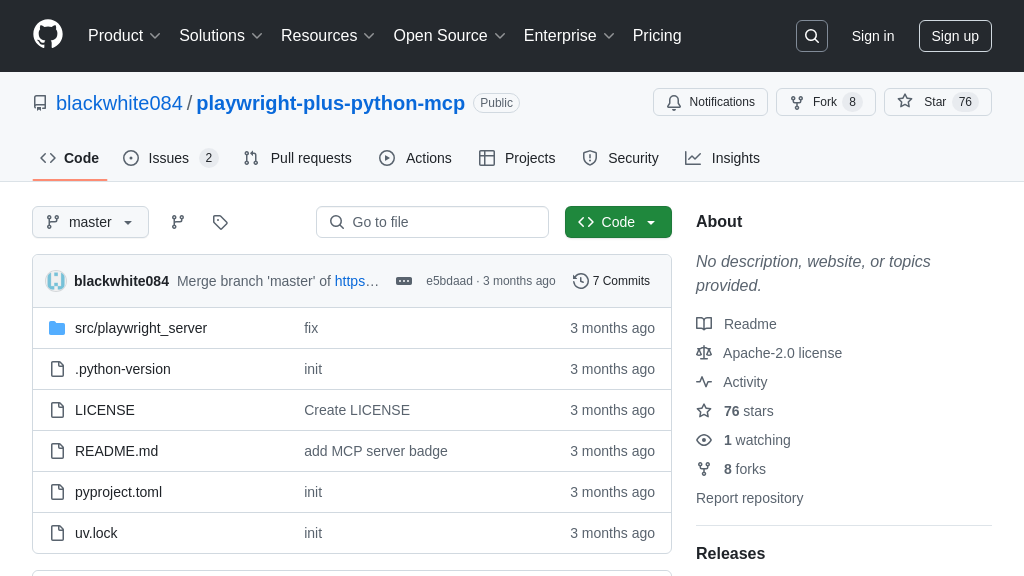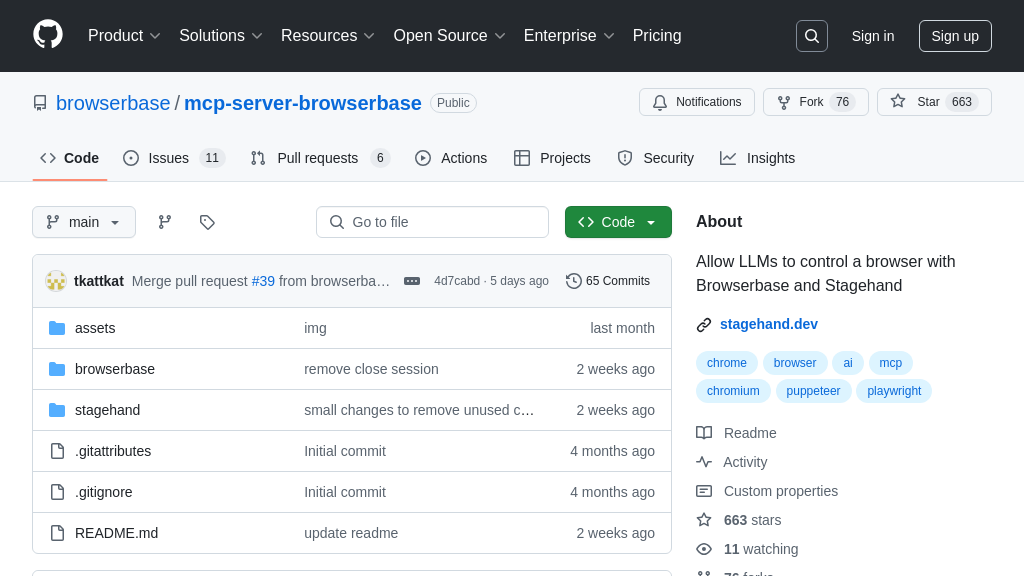phabricator-mcp-server
MCP server for AI models to interact with Phabricator via API. Supports task management and project information.
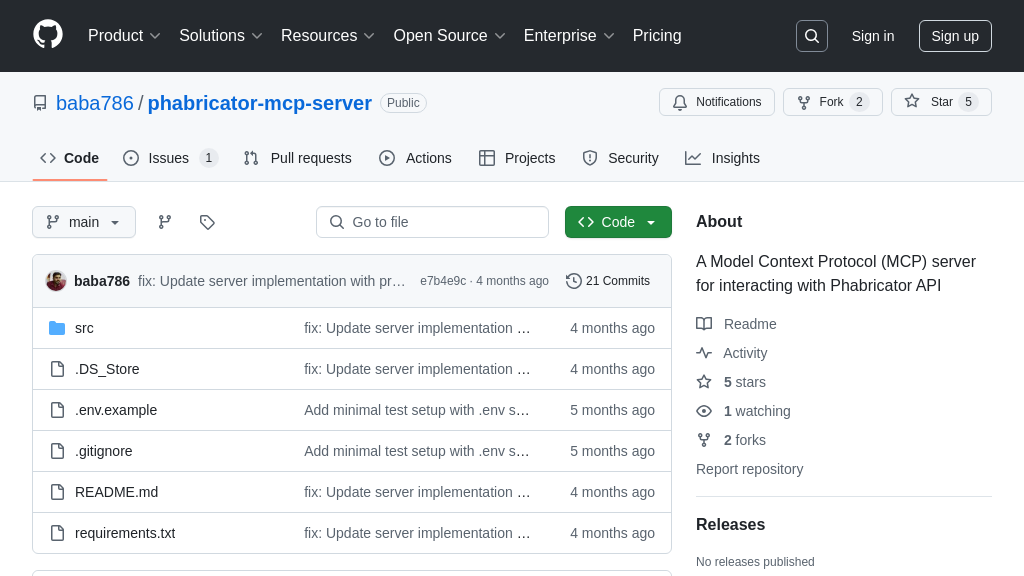
phabricator-mcp-server Solution Overview
The Phabricator MCP Server is a valuable tool in the MCP ecosystem, acting as a server that bridges the gap between AI models and the Phabricator project management platform. It empowers LLMs to interact with Phabricator's API, enabling them to access and manipulate task management, project information, and user details. This server allows AI models to retrieve task details, create new tasks, and update existing ones, streamlining workflows and enhancing collaboration.
Built with Python, the server utilizes standard input/output for communication, ensuring seamless integration with any MCP-compliant client. By providing a standardized interface, the Phabricator MCP Server simplifies the process of connecting AI with project management, saving developers time and effort. This allows for the creation of intelligent agents that can automate tasks, provide insights, and improve overall project efficiency.
phabricator-mcp-server Key Capabilities
Task Details Retrieval
The phabricator-mcp-server allows AI models to retrieve detailed information about specific tasks within a Phabricator instance. This functionality is crucial for AI agents that need to understand the context of ongoing projects, identify dependencies, or track the progress of specific work items. The server receives a task ID as input and queries the Phabricator API to fetch relevant details such as task description, status, assigned users, associated projects, and any linked revisions or commits. This information is then formatted and returned to the AI model in a structured manner, enabling it to make informed decisions or provide relevant assistance to users. For example, an AI assistant could use this feature to summarize the current status of a bug fix, identify the responsible developer, and suggest potential solutions based on the task's history and related discussions. The server uses the Phabricator API token for authentication and authorization, ensuring secure access to the task data.
Standardized Phabricator Interaction
This server provides a standardized interface for AI models to interact with Phabricator, abstracting away the complexities of the Phabricator API. Instead of directly interacting with the Phabricator API, which can be cumbersome and require specific knowledge of its endpoints and data formats, AI models can communicate with the phabricator-mcp-server using the Model Context Protocol (MCP). This simplifies the integration process and allows AI models to focus on their core tasks, such as understanding user requests and generating appropriate responses, rather than dealing with the intricacies of a specific API. For instance, an AI-powered chatbot could use this server to create new Phabricator tasks based on user conversations, without needing to know the specific API calls required to do so. The server handles the translation between the MCP requests and the Phabricator API, ensuring seamless communication.
MCP-Enabled Task Management
The phabricator-mcp-server enables AI models to participate in task management workflows within Phabricator. By providing access to task information, the server allows AI models to assist users in various task-related activities, such as prioritizing tasks, identifying bottlenecks, and suggesting potential solutions. For example, an AI-powered project manager could use this server to monitor the progress of tasks, identify tasks that are at risk of being delayed, and proactively alert the relevant stakeholders. The server can also be used to automate certain task management tasks, such as assigning tasks to users based on their skills and availability, or creating subtasks based on the requirements of a parent task. This integration streamlines task management processes and improves overall team productivity.
Technical Implementation
The server is implemented in Python and leverages the Phabricator API for data retrieval. It uses a simple client-server architecture, where the AI model acts as the client and the phabricator-mcp-server acts as the server. The server exposes a set of endpoints that allow clients to request specific information or perform certain actions. The server uses the Phabricator API token for authentication and authorization, ensuring secure access to the Phabricator instance. The server also includes error handling and logging mechanisms to ensure reliable operation. The use of Python makes the server easy to deploy and maintain, and the clear separation of concerns between the client and server simplifies the integration process.
